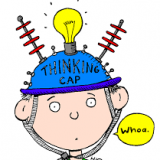[Short Notes] NCERT Class VI – Science, Components of Food – Chapter 2 – Part 2
[Short Notes] NCERT Class VI – Science, Components of Food – Chapter 2 – Part 1
\/
Read complete book (must) at NCERT Class VI – Science, Science, Components of Food – Chapter 2
\/
Importance of Various Nutrients for our body
\/
Carbohydrates mainly provide energy to our body.
Fats also give us energy. In fact, fats give much more energy as compared to the same amount of
carbohydrates.
That’s why foods containing fats and carbohydrates are also called ‘energy giving foods’.
Proteins are needed for the growth and repair of our body.
Food containing proteins are often called ‘body building foods’.
Vitamins help in protecting our body against diseases. Vitamins also help in keeping our eyes, bones , teeth and gums healthy.
\/
(Important for UPSC/CSAT exam)
Vitamins are of different kinds : Vitamin A, Vitamin C, Vitamin D, Vitamin E and K.
There is also a group of vitamins called Vitamin B-complex.
Our body needs all types of vitamins in small quantities.
\/
Vitamin A – Keeps our eyes and skin healthy.
Vitamin C – Helps our body to fight against many diseases.
Vitamin D – Helps our body to use calcium for bones and teeth.
\/
Minerals are needed by our body in small amounts. Each one is essential for proper growth of body and to
maintain good health.
\/
Most food items, usually, have more than one nutrient.
However, in a given raw material, one particular nutrient may be present in much larger quantity than
in others.
For example, rice has more carbohydrates than other nutrients. Thus, we say that rice is a “carbohydrate rich” source of food.
\/
Besides these nutrients, our body needs dietary fibres and water.
Dietary fibres are also known as roughage. Roughage is mainly provided by plant products in our foods.
Whole grains and pulses, potatoes, fresh fruits and vegetables are main sources of roughage.
Roughage does not provide any nutrient to our body, but is an essential component of our food and adds to its bulk. This helps our body get rid of undigested food.
\/
Water helps our body to absorb nutrients from food. It also helps in throwing out some wastes from body as
urine and sweat.
Normally, we get most of the water that our body needs from the liquids we drink — such as water,
milk and tea. In addition, we add water to most cooked foods.
Many food materials themselves contain water. To some extent, our body needs are met by this water. Apart from this, we also add water while cooking many food items.
\/
Balanced Diet
For growth and maintenance of good health, our diet should have all the nutrients that our body needs, in
right quantities.
Not too much of one and not too little of the other. The diet should also contain a good amount of roughage and water. Such a diet is called a balanced diet.
People of all ages needs different types of diet. Balanced diet also depends on amount of physical work we do.
\/
Pulses, groundnut, soybean, sprouted seeds (moong and Bengal gram), fermented foods (South Indian
foods such as idlis), a combination of flours (missi roti, thepla made from cereals and pulses), banana, spinach,
sattu, jaggery, available vegetables and other such foods provide many nutrients.
So, one can get a balanced diet without buying expensive food materials.
\/
The food should also be cooked properly. Otherwise, the nutrients will be lost. Some nutrients gets lost during the process of cooking as well as preparation.
\/
Washing after cutting or peeling of vegetables and fruits results in loss of some vitamins. Skins of many vegetables and fruits contains vitamins and minerals.
Repeated washing of rices and pulses may also result in loss of some vitamins and minerals.
\/
Vitamin C gets easily destroyed by heat during cooking. Hence some fruits and raw vegetables is important for our diet.
\/
Eating too much of fat rich foods may result in suffering from a condition called obesity.
\/
If the food does not contain a particular nutrient and this continues for a long period of time, the person may suffer from its deficiency.
Diseases that occur due to lack of nutrients over a long period are called deficiency diseases.
\/
Deficiency of proteins in food for a long time, is likely to lead to stunted growth, swelling of face, discolouration of hair, skin diseases and diarrhoea.
\/
Deficiency of both carbohydrates and proteins for a long period of time, the growth may stop
completely.
\/
Deficiency of different vitamins and minerals may also result in various diseases or disorders.
| Vitamin/ Mineral | Deficiency disease/disorder | Symptoms |
|---|---|---|
| Vitamin A | Loss of vision | Poor vision, loss of vision in darkness (night), sometimes complete loss of vision |
| Vitamin B1 | Beriberi | Weak muscles and very little energy to work |
| Vitamin C | Scurvy | Bleeding gums, wounds take longer time to heal |
| Vitamin D | Rickets | Bones become soft and bent |
| Calcium | Bone and tooth decay | Weak bones, tooth decay |
| Iodine | Goiter | Glands in the neck appear swollen, mental disability in children |
| Iron | Anaemia | Weakness |
\/
Taking balance diet can prevent all deficiency diseases.
\/














Thank a lot